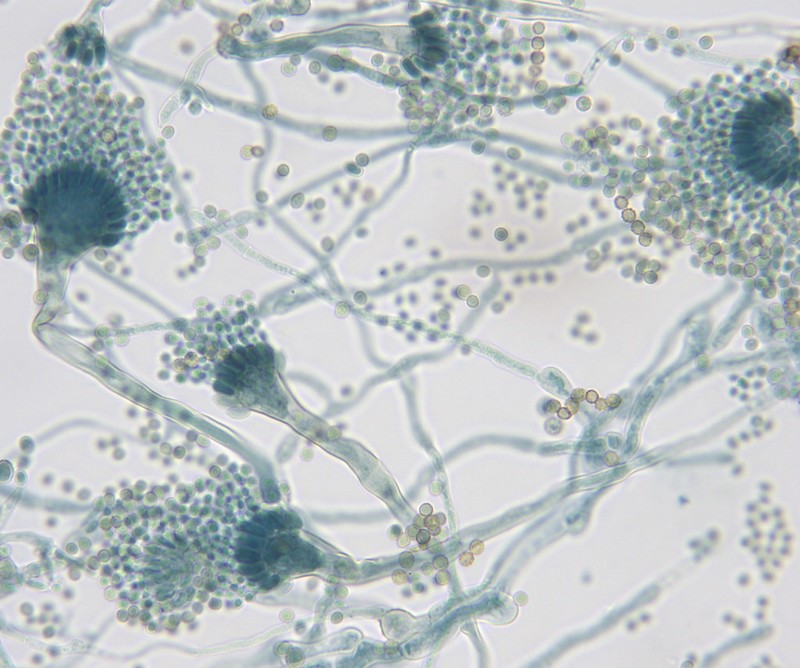
A study by scientists in the United Kingdom suggests at least 40% of antifungal-resistant Aspergillus infections in UK patients are linked to environmental exposure, according to findings published today in Science Advances.
For the study, a team led by researchers with Imperial College London recruited citizen scientists to collect airborne spores of Aspergillus fumigatus, a widespread environmental fungus that's found in vegetation and soils and produces spores that can be inhaled. Inhalation of A fumigatus spores can cause severe lung infections in at-risk populations, such as cystic fibrosis patients and organ transplant recipients. The aim of the study was to assess human exposure to antifungal-resistant A fumigatus, which has been rising in recent years, in part due to azole-based fungicides used in plant agriculture.
From June 2018 through April 2019, 1,894 samples were collected, 919 of which yielded A fumigatus colonies. Screening of the isolates revealed that 111 (4.7%) were resistant to the agricultural fungicide tebuconazole, and further testing of 99 of those isolates found high resistance to azoles used for clinical infections, including itraconazole (86%), voriconazole (64%), and isavuconazole (83%). In addition, 51% of the A fumigatus isolates were resistant to three medical azoles, and 14% were resistant to all tested medical azoles.
It is imperative that we determine sources of azole-resistant A. fumigatus to reduce treatment failure in patients with aspergillosis.
After conducting whole-genome sequencing of the environmental isolates and comparing them to the genomes of clinical A fumigatus isolates from UK patients, which showed shared resistance mutations, the researchers concluded that roughly 40% of antifungal-resistant A fumigatus infections in the United Kingdom are acquired from environmental exposure. They estimate a per capita cumulative annual exposure of 21 days.
"Because of the ubiquity of this measured exposure, it is imperative that we determine sources of azole-resistant A. fumigatus to reduce treatment failure in patients with aspergillosis," the study authors write.
 A
A 













